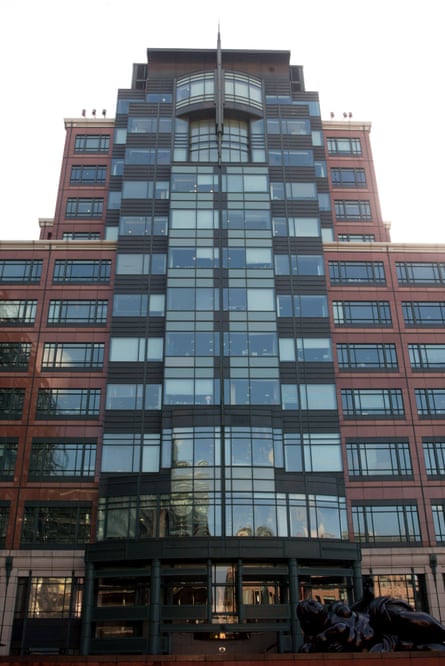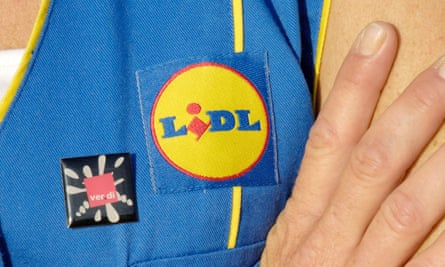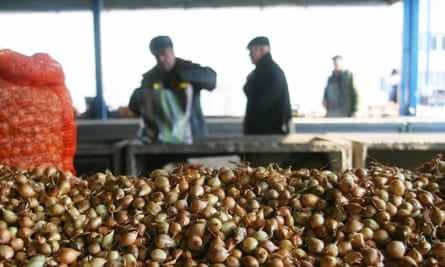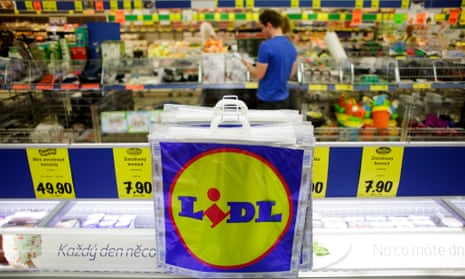The German discount supermarket Lidl and its sister chain Kaufland have benefited from almost $900m (£576m) in public development money over the past decade, the Guardian can reveal.
The companies, owned by the large retail company Schwarz Group and controlled by one of Germany’s wealthiest families, received loan funding from a little-known wing of the World Bank and from the European Bank for Reconstruction and Development (EBRD).
These public institutions, funded by taxpayers and owned by governments, have explicit mandates to increase local development in the countries where they spend their money. The World Bank also has an additional, specific mandate to reduce global poverty. There is no suggestion of wrongdoing with regard to the receipt of the money.
The banks said their funding for Lidl and Kaufland would help the companies expand across central and eastern Europe, creating jobs, opening new markets for local producers and bringing “good quality, affordable food” to poor consumers.

However, these claims have been attacked by trade unions and development groups. Luiz Vieira, coordinator of the Bretton Woods Project, a British NGO that monitors the World Bank, said: “This idea that an injection of capital to multinationals will lead necessarily to good, sustainable growth has been repeatedly proven false over the last 20 years.”
Jan Czarzasty, professor at the Warsaw School of Economics, said the amount of public money that the Schwarz Group had received was shocking. “Everywhere where they open new stores, there are stories that come to the surface regarding working conditions; employee satisfaction is generally low … it seems part of the business model of Lidl, as a company.”
In Poland, Lidl has been the focus of repeated protests from its workers. “We are overworked, we do the work that should be done by many more people,” said Lukasz, an employee on the night shift at a Lidl warehouse who did not want to give his surname. He said his wrists have swollen and he has bruises on his skin from packing and unpacking heavy loads of fruits and vegetables – but that it is risky to speak out. “People are afraid to lose their jobs,” he said.
Reports from the state labour inspectorate in Poland, seen by the Guardian, document repeated violations of the national employment laws at Lidl, including breaches of provisions on working time that require employers to give workers at least 11 hours off each day and 35 hours of uninterrupted rest each week.
Alfred Bujara, chairman of the retail section at Poland’s Solidarity trade union, said workers who try to organise at Lidl face harassment and bullying by managers. “Stress and intimidation is very high,” he added.
The Schwarz Group, which started in the 1930s as a grocery wholesaler in Germany, is now one of the world’s largest and fastest-growing retailers, and its head, Dieter Schwarz, is one of the world’s richest men, worth an estimated $21bn .
In the UK, there are now more than 600 Lidl stores where sales are soaring, although the chain has not been immune to controversy. Last year, the company hit the headlines with reports that Polish staff in Scotland were forbidden from speaking their native language, including with Polish customers.

According to its records, the International Finance Corporation (IFC), the lesser-known but increasingly powerful branch of the World Bank that invests in private companies, gave its first $100m loan to the Schwarz Group in 2004 – the same year that the German trade union Ver.di released its “black book” on Lidl in Europe, documenting alleged labour rights violations.
This funding, the IFC said at the time, was to help the group expand in “selected urban areas” in unspecified “target countries in central and eastern Europe”. The Guardian has confirmed that some of this money went to finance the expansion of Lidl in Poland.
In 2009, this was followed by $75m for Kaufland to expand in Bulgaria and Romania, and in 2011 by $66m for Lidl in Romania. In 2013, more than $105m was given for Lidl’s plans to scale up in Bulgaria and Croatia and to open its first stores in Serbia. In total, the IFC provided about $350m in long-term loans towards the Schwarz Group’s march across Europe.
The EBRD, which often co-finances projects with commercial banks, has raised more than $700m for Lidl and Kaufland over the last decade, contributing nearly $500m itself.
The IFC defended its investments in the Schwarz Group, saying that its eastward expansion has “created new channels for local farmers to supply their products. Consumers gained access to a more affordable and diverse selection of high-quality food products.”
Gilles Mettetal, head of agribusiness at the EBRD, said: “For the people, it changed their lives.” He added that the retailer provided a “model that at the time didn’t exist, which was targeting the lower social category, a poorer category, offering products to people who otherwise could not afford them.
“This is the credit I give them. They have been, yes, a quite commercially aggressive group, but they have people accessing products that they wouldn’t have been able to access otherwise.”
Vieira said the banks should have to prove that their funding has done more good than bad. “They’re public institutions operating with public money, so I think transparency should be the point of departure … without transparency they cannot guarantee there will not be negative impacts from their funding.”
The IFC and EBRD said they regularly monitor their investments, but that data on how many jobs were created and how the company’s expansion has affected local producers was commercially sensitive information and therefore confidential.
Lidl in Poland said the company has 14,000 employees in more than 500 shops across the country, with fair working conditions. Wages at Lidl are “significantly higher” than those at other retailers in Poland and employees get “numerous social benefits” including free private healthcare, it added. Lidl in Poland “has always been open to dialogue with employees as well as with trade unions”, the company said.
Lidl did not respond to questions about its receipt of public development money.
In Poland at least, Lidl is not necessarily the cheapest supermarket. A survey in 2014 priced a standard basket of goods at Lidl at 47.8zl (£8.50), while at Tesco, which also operates in the country, the same shopping cost 40.1zl (£7.10).
Czarzasty said it is Lidl’s strategy to constantly look for new destinations for its stores, “systematically penetrating smaller and smaller locations, smaller towns, in many cases villages”, which can squeeze out local traditional retailers and fundamentally change rural economies. “It’s another variation of the Walmart effect … there may be some new jobs created, but how many? And how many jobs are lost? We don’t know that.”
In Romania, Lidl has opened more than 185 stores since 2011 – an average of almost one a week for four years. In Bucharest nearly all of the chain’s outlets are within walking distance of an older, local marketplace.

Ion Garalin, a small-scale trader who has sold local produce at the Piata Gorjului market in western Bucharest for more than two decades, says this has made a difficult situation even worse. “Really, the most negative impact is that they’ve chosen to open stores very close to local markets like this one,” said the 67-year old, standing in front of a stall piled high with fresh vegetables, waiting patiently for customers. Today, this once bustling market is now eerily silent. “We’re being eaten alive … We can’t go on like this.”
Down the street, dozens of shoppers are zipping down the no-frills aisles of a Lidl, picking up products – from jars of pickles to specialties such as herring fillets in tomato sauce – stacked on metal shelves and wooden pallets on the floor. “I like the avocados,” says Camelia, an elegantly dressed woman standing beneath the store’s familiar red, blue, and yellow logo.
However, she said it is hard to believe the company would have received any public development money. “Of course I know what the World Bank is, and perhaps they could have found a better use for their money considering all the problems we have in Romania.”
Claire Provost and Matt Kennard are Bertha Fellows at the Centre for Investigative Journalism. Travel for this story was supported by the Pulitzer Center for Crisis Reporting.
The subheading on this article was amended on 8 July 2015. An earlier version said that Lidl was “given” money by World Bank and others.


